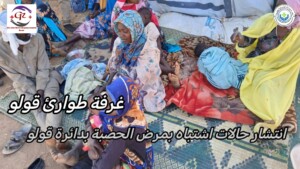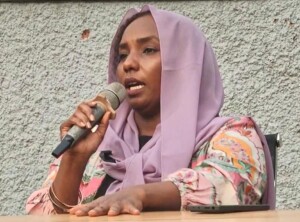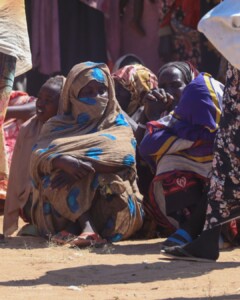Number of Covid-19 cases in Sudan rises after easing of lockdown
The High Committee for Health Emergencies has decided to extend the travel ban from and to Khartoum, following “a noticeable increase” in the number of Covid-19 cases last week. As of 16 July, 10,992 coronavirus patients have been recorded in Sudan.
 No traffic in Khartoum after dusk-to-dawn curfew was imposed in Sudan, March 25, 2020 (Social media)
No traffic in Khartoum after dusk-to-dawn curfew was imposed in Sudan, March 25, 2020 (Social media)
The High Committee for Health Emergencies has decided to extend the travel ban from and to Khartoum, following “a noticeable increase” in the number of Covid-19 cases last week. As of 16 July, 10,992 coronavirus patients have been recorded in Sudan.
In a press statement on Monday, the committee requested all people in the country “to act with caution and seriousness, with the approach of the blessed Eid El Adha” (the Muslim Feast of the Sacrifice).
The ban will be extended until after the Eid holiday that will commence on July 31. Traditionally, many Sudanese leave the capital in the week before the feast to celebrate it together with their families in other states.
The committee pointed to “a noticeable increase” in the number of coronavirus infections in the capital and the states. As of July 16, the federal Health Ministry reported 167 new patients in the country (135 of them were recorded in Khartoum). This brings the total number of Covid-19 cases recorded in the Sudanese capital 7,915.
In neighbouring El Gezira 1,049 patients were registered. The number of Covid-19 cases in the other states ranges between 295 (River Nile state) to six (Central Darfur).
On July 7, the lockdown in Khartoum was eased. Curfew hours were reduced from 13:00-06:00 to 18:00-05:00, and the bridges between Khartoum, Omdurman, and Khartoum North were reopened for traffic. Flights to and from Khartoum International Airport resumed partially.
Ministries, companies, and other working places were instructed to limit the number of their staff members to less than 50 per cent in the first phase.
Yet, according to the committee, many Sudanese do not adhere to the imposed precautionary measures during transportation, in markets, and at their jobs. It warned that more strict measures may be imposed again.
Earlier this month, Siddig Tawir, Sovereign Council member and deputy chairman of the High Committee for Health Emergencies said that the Sudanese lack “a supportive community culture to deal with the coronavirus pandemic”.
Radio Dabanga’s editorial independence means that we can continue to provide factual updates about political developments to Sudanese and international actors, educate people about how to avoid outbreaks of infectious diseases, and provide a window to the world for those in all corners of Sudan. Support Radio Dabanga for as little as €2.50, the equivalent of a cup of coffee.












 and then
and then